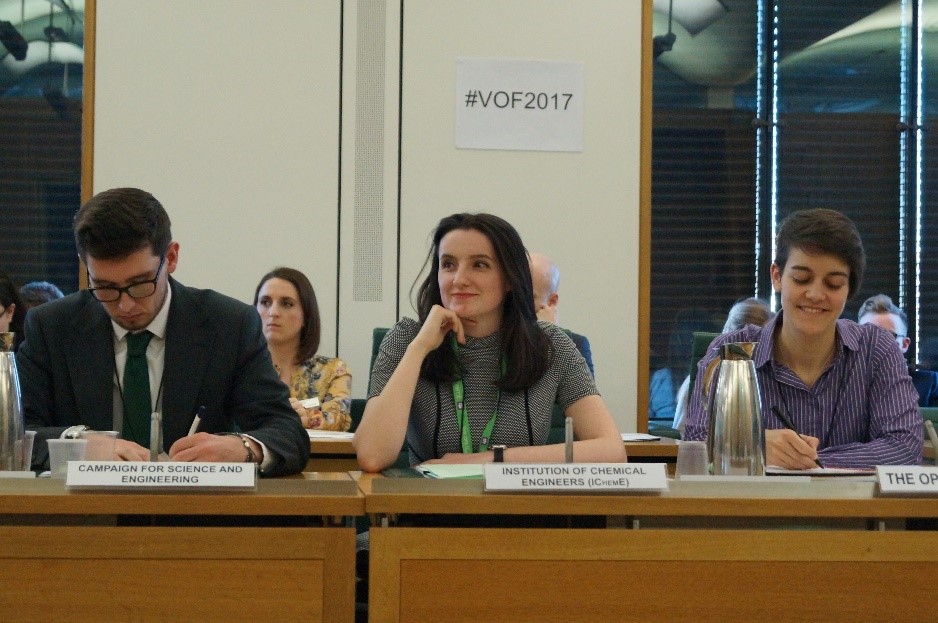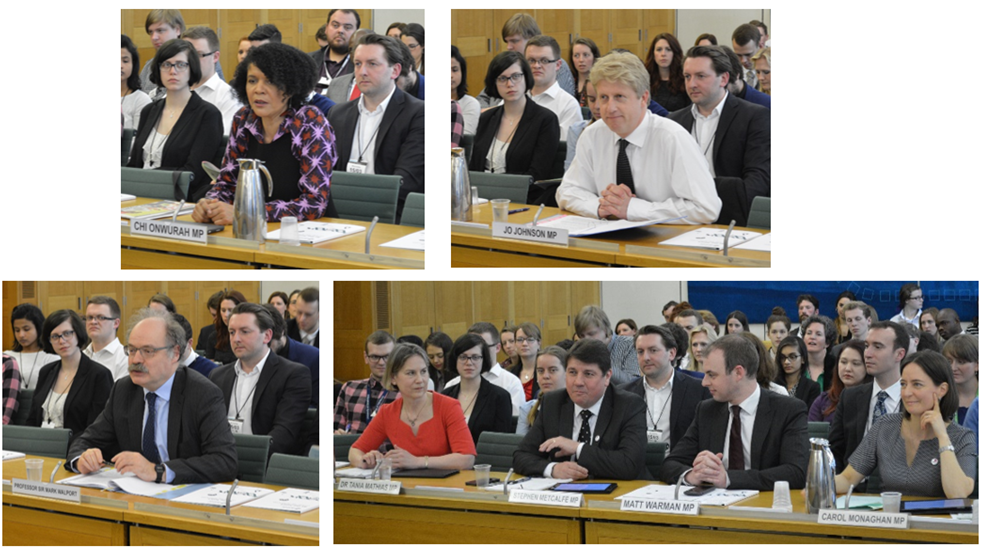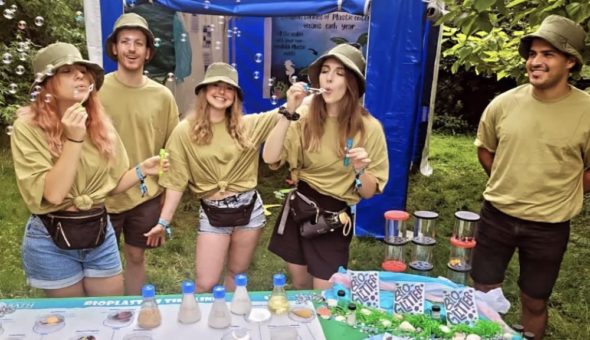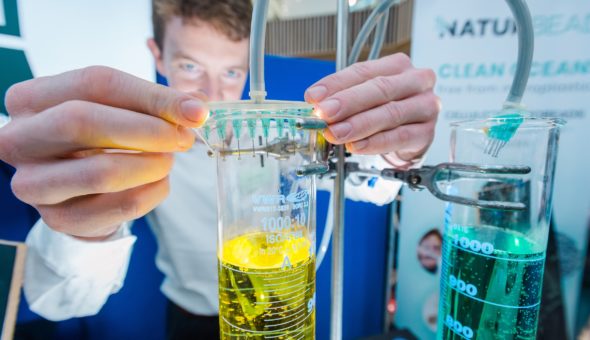On the 15th of March, I headed to Parliament for an event organised by the Royal Society of Biology, called “Voice of the Future”. This event allows for the tables to be turned on MPs and select committees, with young scientists and researchers asking the questions that matter to them.
It was held in Portcullis house, the sci-fi looking building next to Big Ben, which acts as another wing of parliament. The building has an air of chaos surrounding it, with people running around and screens in every room with constant updates from the House of Commons. We required pretty heavy security to enter, and we weren’t allowed to take any photos or go into the café area (I think MPs are all a bit jumpy about unflattering-career-ending photos).
I was representing the Institute of Chemical Engineers (IChemE), and successfully applied with this question:
“In the 2015 manifestos, water quality received significantly less attention than other key environmental issues, despite increasing evidence of water's key role in antibiotic resistance, climate change and wildlife damage. Why is water quality so overlooked? And how can this be changed?”
However, when I arrived I found out they had completely changed a lot of our questions, so my question about why water quality isn’t on the agenda was taken off the agenda… My question was changed to “With less than 15% of MPs with backgrounds in STEM, how should the government ensure that policy-making remains firmly based on evidence?” (A question I was hesitant over, as it implied that only scientists can understand evidence. As scientists and experts, we have a responsibility to effectively communicate our message to the wider audience).
Stephen Metcalfe MP, Chair of the House of Commons Science and Technology Select Committee replied:
“I don’t think that there has to be a direct link between having a science background and being able to base your decision-making process upon evidence. If you believe in evidence you all have to stand up for it.” He went on to state that there are times when government takes a different path and doesn’t follow the evidence, due to other considerations. However, this should never be because the evidence doesn’t suit a particular agenda and evidence should remain at the heart of everything government does.
Dr Tania Mathias MP added:
“We do have some engineers in Parliament and I’m sure we could always do with some more. The fact is evidence is scrutinised ever day in Parliamentary debates. You will get pulled up if your argument and your evidence isn’t strong.”
Tania went on to explain that the UK parliament is the only one in the world with opposing benches. She stated that this means you will be heavily scrutinised, and will be pulled up if your evidence or argument isn’t strong enough (reminds you of a viva, no?).
The MPs never missed an opportunity to take a dig at the other parties' policy, leaders, handling of EU, handling of Trump but of course, the session was dominated (like the rest of British culture) by the ever looming Brexit (first mention of “Brexit means Brexit” recorded at a mere 22 minutes). Jo Johnson MP (of the same relation and the same blonde floppy hair) seemed to have a particularly high volume of Brexit questions including:
“With the Brexit negotiations up and coming, how will the Government ensure that vital collaboration and communication can continue with our European colleagues?
His response:
“Firstly, we have to remember we are for the moment, still a member of the EU with all the rights and obligation that go with being a member.
We’ve been very clear as a government that we value our European research partnerships, and we value collaborative structures with countries in Europe and broadly around the world and we will want to ensure those collaborative relationships continue to be productive in years to come”
In response to concern surrounding gaps in research funding, he stated:
“In the budget we have allocated £270 million within the industrial strategy challenge fund, for research activity.”
(Disclaimer: This figure has not made it to the side of a bus just yet)
Chi Onwurah MP, the shadow minister for industrial; strategy, science and innovation, who said she went into politics for the same reason she went into science, “because they make the world a better place, they are the engines of progress… I think you’ll all agree on that for S&E, maybe not for politics”.
On the topic of the lack of women in STEMM, Chi, an electrical engineer herself, stated that the number of female engineering students at her old university, Imperial, has remained constant at 12% since she attended in 1984. She continued that there have been a number of initiatives that have been unsuccessful in increasing the number of females across STEMM, and the importance of understanding why that is:
“There is a reason more women haven’t been going into science and engineering for decades, we need to do something about that. We need not to blame historical facts, which are a consequence of science and engineering not welcoming women over centuries. The proportion of women who are fellows of the Royal Society is just 7%, so we need to encourage initiatives like Athena Swan, more transparency, and support different universities, institutions, programs which are successful".
Whilst on the topic of Donald Trump, she stated: “My big concern obviously is the Trump Administration science policy doesn’t seem to be a science policy.”
She emphasised with continuing strong ties with American scientists and institutes, which she points out haven’t “all become trump supporters overnight”. She also stated “we need to be clear, we’re not going to change the meaning of science for one man”.
Overall, it was a fantastic opportunity to see the complex but vital relationship between science and government, as well as a snapshot into how government works. I would highly recommend anyone to apply for it next year!
Personal Highlight: Hilary Benn MP running in, to find the Brexit committee had moved. If you have any information regarding the whereabouts of the missing Brexit committee, could you let Westminster know.
Respond




